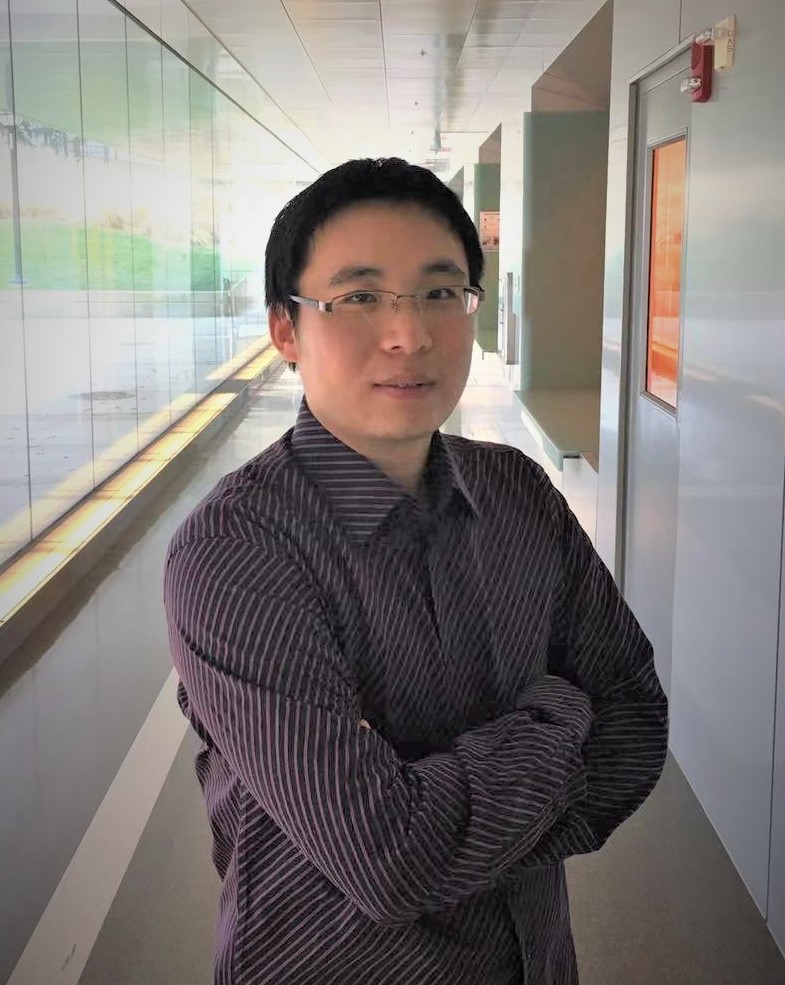Solar Water Splitting on Low-Dimensional Semiconductor Nanostructures
Date: 2019/04/25 – 2019/04/25
Academic Seminar: Solar Water Splitting on Low-Dimensional Semiconductor Nanostructures
Speaker: Dr. Yongjie Wang, University of Michigan
Time: 9:00a.m.-10:00a.m. April 25th, 2019 (Thursday)
Location: Room 454, Longbin Building
Abstract
An essential step of artificial photosynthesis is solar water splitting, which can be achieved by either photocatalytic or photoelectrochemical approach. To date, however, there has been no demonstration of such efficient and stable device, which has been largely limited by the lack of a semiconductor photoelectrode that can operate efficiently and stably under visible light and can be directly integrated onto Si wafers.
Here, we investigate the MBE growth, electronic and optical properties, and photocatalytic and photoelectrochemical performance of low-dimensional III-nitride and transition metal dichalcogenide (TMDC) nanostructures. Relatively high solar-to-hydrogen (STH) efficiency (>5%) photocatalytic water splitting has been demonstrated on monolithically integrated multi-band InGaN nanowires grown on nonplanar Si wafers. We also report on the demonstration of an InGaN nanowire photocathode for efficient unbiased photoelectrochemical water splitting. We have further developed GaN-protected GaInP2/GaAs/Ge triple-junction photocathode exhibiting relatively good stability (>50 hours) in unassisted solar water splitting, which is the best reported stability for multi-junction photocathodes with >12% STH efficiency. In addition, monolayer WSe2 has been reported as potentially low-cost and multi-functional photocatalyst for solar water splitting, including extraordinary capacities for efficient light harvesting, water oxidation reaction, and proton reduction reaction. Work presented in this thesis provides a new approach for achieving high efficiency and highly stable solar water splitting on the commonly used semiconductors, e.g. silicon and gallium nitride.
Biography
 Yongjie Wang received his B.E. degree in Composite Materials and Engineering in 2012 from Harbin Institute of Technology, China, and M.S. degree in Mechanical Engineering in 2014 from the University of Californian, Merced, working on graphene and carbon nanofiber nanomaterials. From 2014, he started the Ph.D. studies on MBE-grown III-nitride materials in Electrical and Computer Engineering program at McGill University, Canada, and moved to the University of Michigan from 2016. His research interests include solar fuel conversion using III-nitride and transition metal dichalcogenide nanostructures.
Yongjie Wang received his B.E. degree in Composite Materials and Engineering in 2012 from Harbin Institute of Technology, China, and M.S. degree in Mechanical Engineering in 2014 from the University of Californian, Merced, working on graphene and carbon nanofiber nanomaterials. From 2014, he started the Ph.D. studies on MBE-grown III-nitride materials in Electrical and Computer Engineering program at McGill University, Canada, and moved to the University of Michigan from 2016. His research interests include solar fuel conversion using III-nitride and transition metal dichalcogenide nanostructures.
